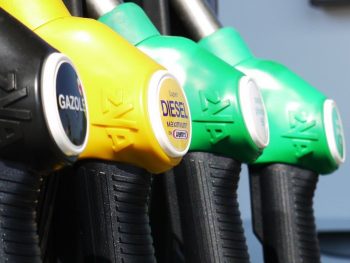Lower fuel prices reliant on lockdown lift
Petrol prices have hit a four-year low but lockdown conditions will need to be significantly eased for further reductions in fuel prices to happen.

Petrol prices are at their lowest level since May 2016 but are unlikely to fall further due to lack of demand
Latest RAC Fuel Watch data shows the average price of a litre of petrol fell by 4.15p in April, from 113.1p to 108.95p – the lowest level since May 2016. Meanwhile, the average price of a litre of diesel fell nearly 3p from 117.5p to 114.54p per litre last month.
But while the impact of the coronavirus is one of the main factors in why UK fuel prices have dropped, it’s also the reason why they are not falling any further, according to the RAC.
Last month saw the cost of oil collapse to its lowest level in 21 years – down to just $13 on 21 April – as a result of demand disappearing in the wake of the coronavirus outbreak.
However, although this sent wholesale prices plunging still further in the month, some of the UK’s largest fuel retailers did not cut forecourt prices with so few people buying fuel in the first place. This was in sharp contrast to March, which saw the supermarkets announce an unprecedented 12p per litre price chop on a single day.
While there remains scope for a further 12p per litre to come off the prices of both petrol and diesel, the RAC said this would be subject to any significant easing of coronavirus lockdown restrictions; RAC fuel spokesman Simon Williams outlined that retailers are only going to reduce prices again if they can be confident of selling fuel in large enough quantities.
He explained: “While it might seem odd that fuel price falls stalled last month despite wholesale prices coming down yet further, it is explained by the simple fact that UK fuel retailers will have been selling a fraction of what they would normally have sold in the last six weeks.
“We expect that only an easing of lockdown restrictions by the UK government will trigger forecourts into changing their prices significantly, as this would effectively be a signal to millions that they can start making different types of journeys again by car, not just those currently deemed ‘essential’. As and when they do, drivers could be in line for even cheaper fill-ups in the coming months if wholesale prices remain suppressed, but that remains a big ‘if’ because as soon as more of us start driving the price of oil could begin to increase.”
He also warned that higher prices could be on the cards.
“A cut in oil production, which was previously agreed by some of the world’s largest oil-producing nations, is likely in time to lead to the oil price drifting back up again,” added Williams, “although for now supply is outstripping demand so much that it’s hard to see prices increasing by any great margin in May.”

















